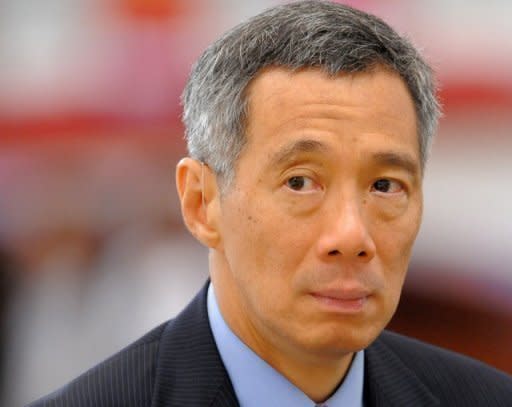PM Lee means business: analysts

The dramatic overhaul of the Singapore government shows it is serious in making changes, said analysts on Wednesday.
They were responding to the new Cabinet line-up unveiled by Prime Minister Lee Hsien Loong on Wednesday afternoon. (Full line-up here)
"These Cabinet changes are a cracker," veteran journalist and director for the Asia Journalism Fellowship P N Balji told Yahoo! Singapore.
The former editor-in-chief of Today newspaper went on to underline the significance of the changes.
"Three ministers who were under severe attack during the campaigning were dropped, a bloated Cabinet of 21 ministers was trimmed down to 15, 11 of the 14 ministries saw changes in their leadership and and the average ministerial age came down to 53," he said.
Several election newbies were also thrust into office-holder positions, he added. "It was epochal in many ways," he said, using a term the PM used.
Describing the changes as "deep" and "dramatic", Balji pointed to the various departures the Prime Minister has made from the government's usual style.
He noted, it is not in Singapore's culture to drop ministers "in such a dramatic fashion".
"This is the first time in my memory that five ministers are leaving at one go," he said.
And by putting "election virgins" Heng Swee Keat and Major-General Chan Chun Sing in as ministers, "the slow motion way of blooding new talent into the Cabinet was thrown to the wind," he said.
He also observed: "The government's long-held belief that they are not in the popularity business was discarded when the strong signals that voters sent on May 7 underpinned nearly every change."
For instance, those who did well in the GE like Finance Minister Tharman Shanmugaratnam and Madam Halimah Yaacob, were promoted.
"With these changes, the Prime Minister has shown that he means business. With a clean slate, he has the best opportunity to make Singapore politics more open and decent," said Balji.
"He can re-engage an electorate that displayed its pent-up anger at the ballot box."
Reuben Wong, an assistant professor at the National University of Singapore's political science department, told AFP, "One thing we can say is they are really serious about rejuvenation."
"Obviously they are responding to a lot of public unhappiness," he said.
Singapore Management University law lecturer Eugene Tan told Channel NewsAsia, the changes were not populist moves but the government had taken into account the need to move forward.
Leadership renewal has taken a "greater urgency", said the political watcher.
There seems to be a "quiet confidence" that this newer and younger team can do the job, added Tan.
But he also noted that established ministers continue to hold on to key portfolios and junior ministers can still consult with retired ministers, who are still in Parliament.
The road ahead
The emphasis now is "how to do things differently but maintain the (government's) strategic direction," said Tan.
Balji pointed to the "transformation of the ruling party" as the "taller task ahead".
Compared to the Workers' Party, which showed discipline and purpose in this GE, the People's Action Party showed "its weariness and lack of purpose".
"The party that had ruled Singapore uninterrupted since 1959 was not cohesive and not on message," he said. And now, PM Lee has the next five years to show that he and his team have learnt the lessons of GE 2011.
"If he does not move boldly and transform the ruling party and his government, the voter backlash will not just be in the form of ripples. The political oasis called Singapore will see a storm, maybe even a tsunami," warned Balji.

